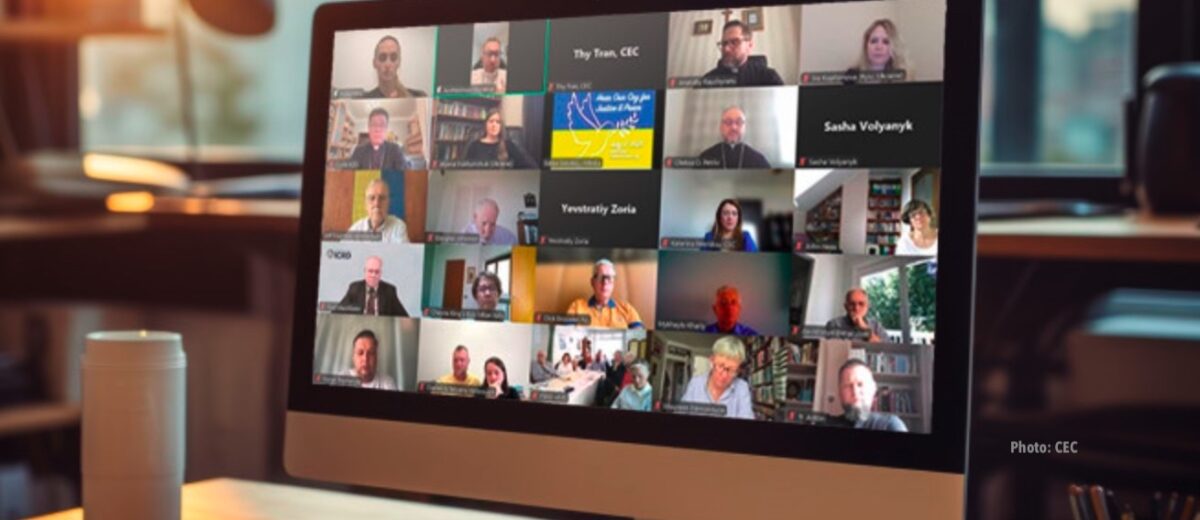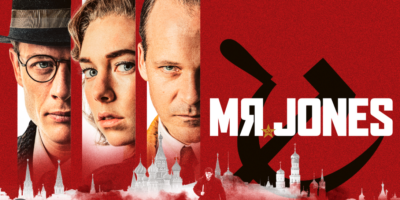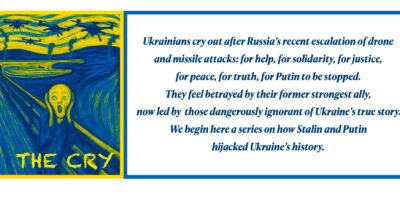Escalated Russian aggression ‘emboldened by the silence and inaction of powerful global actors’, prompted leaders of Ukrainian faith networks to make ‘a desperate cry’ for support and solidarity to faith network leaders of churches and organisations in Europe and beyond during a Global Interfaith online meeting on Thursday*.
Orthodox, Catholic and Protestant voices echoed the urgent appeal posted last week on the website of the All-Ukrainian Council of Churches and Religious Organisations, which called for “believers of democratic countries and all people of good will to unite in the name of truth and justice, to use all available means of influence to put an end to this terrible war and ensure a proper assessment of the criminal actions of the aggressor.” The Appeal stressed the urgent need for clear moral witness against aggression.
The Interfaith online meeting engaged around 80 participants from 17 countries of various persuasions, ages and backgrounds, and was facilitated by the Schuman Centre for European Studies in Amsterdam at the request of the AUCCRO. Last Thursday was International Criminal Justice Day, thus highlighting the call for justice for Vladimir Putin’s war crimes for which arrest warrants have been issued.
Russian aggression, the Appeal stated, has caused:
• the destruction of cities and civilian infrastructure,
•the brutal violation of human rights and freedoms in the temporarily occupied territories of Ukraine, including religious persecution, the closure of places of worship, torture and killings of clergy from various denominations,
• the forced migration of millions and the separation of families,
• the abduction of Ukrainian children, and
• horrific treatment of both military personnel and civilian captives.
Metropolitan Yevstratiy of the Orthodox Church of Ukraine said, “The doctrine of ‘holy war’ proclaimed by the head of the Russian Orthodox Church, Kirill Gundyayev, contradicts not only Orthodox teaching but Christian teaching in general. We, as the AUCCRO, have repeatedly condemned the criminal use of religious rhetoric and the authority of the Church to justify and propagate war. We call on all religious leaders to do the same.”
He added, “We ask religious leaders and communities to pray, because we know that God acts in history, and He can change everything, including stopping the bloodshed. Therefore, we ask you to pray for the victory of truth and a just peace for Ukraine.”
Rejecting neutrality
The Apostolic Nuncio to Ukraine, Visvaldas Kulbokas, expressed hope for further meetings, noting that “such meetings further demonstrate our efforts and desire for peace, and are already a manifestation of our decision, which side we take — peace or war.”
The meeting issued an Interfaith Declaration of Conscience and Solidarity with the People of Ukraine, affirming Ukraine’s right to self-defence and condemning Russia’s unjust war, while rejecting neutrality in the face of violence and pledging moral witness, prayer, humanitarian aid and advocacy.
Among the faith networks represented included the CEC (Conference of European Churches), IAO (Interparliamentary Assembly on Orthodoxy), Together for Europe, 24-7 Prayer, European Prayer Breakfast movement, YMCA, YWAM (Youth With A Mission) and the ENC (European Network of Communities).
Dr Douglas Johnston, of the International Center for Religion and Diplomacy in Washington, affirmed that faith traditions, when properly engaged, can become powerful resources for healing historical grievances and resolving seemingly intractable conflicts.
Commenting on CEC’s endorsement of the Declaration, Rev. Frank Dieter Fischbach, CEC General Secretary said, “In the face of unprovoked aggression and immense human suffering, European churches must not stand silent. As CEC endorses this call, we reaffirm the gospel’s demand for justice. We call for the respect of the sanctity of life and stand in active solidarity with a nation fighting for its freedom, dignity, and peace. Faithfulness to the gospel today means courage and the fight for truth.”
‘Clamour for justice’
Endorsement of the Interfaith Declaration of Conscience and Solidarity meant the start or continuation of a sustained campaign of prayer, advocacy and humanitarian aid, co-moderator Father Oleksa Petriv of the Ukrainian Greek Catholic Church reminded participants as the meeting came to closure.
All networks were also encouraged to collaborate on making Ukrainian Independence Day, Sunday, August 24, a global day of solidarity with Ukraine. Sermons, prayer vigils, concerts and children’s activities could be augmented by a minute’s silence at noon in remembrance of the war’s victims, followed by a minute’s loud clamour for justice with church bells, pots and pans (as during COVID), car horns and shofars. Seminars and publications recovering true perspectives on Ukraine’s history would be part of the preparation for this Global Solidarity Day on August 24. We will follow developments in future Weekly Words.
Last week, we began the first of a four-part series on ‘History Hijacked’. Part two, on The Holodomor – History Buried, Truth Denied, will be sent tomorrow as a Weekly Word Extra.
* An edited version of the online meeting can be viewed here.
Till next week,



